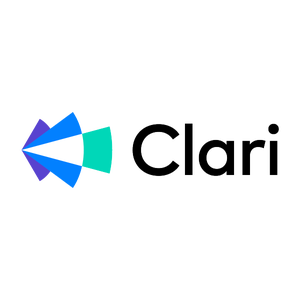How to Fix a Toxic CRM RelationshipHow to Fix a Toxic CRM Relationship
A CRM relationship can quickly turn toxic when expectations on return are unrealistic.
June 14, 2023

Tell us: When did you experience your first toxic CRM relationship?
I know how it is. At first, the launch of a new customer relationship management software is celebrated by the entire organization. Woo! We did it!
Finally! A technology that centralizes and simplifies the management of customer data, automates the administrative functions of the sales process, provides actionable insights that are easily digestible by all stakeholders, and facilitates steady revenue growth through seamless integration of all these processes.
The relationship begins, and, as with any other promising union, the brightness of all the possibilities blinds you to potential shortcomings.
For many, it was Salesforce.com, or SFDC. Ah, yes, it’s a tale as old as time.
Let’s briskly walk through the stages of the all-too-familiar toxic SFDC relationship.
1. The “I Love SFDC!” Phase
When SFDC is first demoed to you by the Salesforce sales team, it’s neatly packaged and demonstrates seemingly otherworldly capabilities. Concatenated fields? Scored customer profiles? Customizable dashboards?! Not to mention one centralized location for all your customer data and a way to understand their preferences clearly. Your sales operation is going to be a well-oiled machine now. This is it. This must be destiny. This is exactly what you’ve been waiting for!
Sadly, after a few days of first getting to know SFDC, you soon realize that the demoed solution was just that — a demo. Those features aren’t available out of the box. They need to be developed. Systems need to be integrated. “No big deal,” you tell yourself. Every relationship requires a little work, and, once all that work is done, things will really get moving.
“You can do this,” you lie to yourself. “You can ‘fix’ SFDC.”
2. The “… I Like SFDC” Phase
Four months go by, and you’ve finally accepted that there was a serious learning curve to SFDC that you didn’t fully grasp going in. Between the long, complex implementation process and the ongoing maintenance, manual data entry and high cost, you start to wonder if you made the right decision. But, on the other hand, let’s face it: It is really helpful once you get used to it. It’s not entirely SFDC’s fault that the user interface isn’t intuitive and practically requires a Python certification to know how to create a distribution list. After all, you can’t expect it to be perfect. Maybe your expectations were too high.
Maybe you’re not doing something right. Maybe you’re the problem.
3. The “Wait … I Think I Hate SFDC” Phase
What were you thinking when you brought SFDC into your tech stack? It can’t do anything right. You’ve spent an incalculable number of hours manually entering data. You need to automate your business processes so that you can spend more time doing meaningful work. You need accurate customer information and the flexibility to implement enhancements quickly. You need speed and efficiency. And where are those dashboards?! New business challenges specific to the operation continue to arise. It just isn’t helping.
4. The “I’m Stuck with SFDC” Phase
You’ve accepted things. This is your life now. SFDC has become a permanent fixture of your technology environment, which means you two are stuck with each other. What are you going to do? Leave? Ha! You can’t leave. There’s no leaving. You and SFDC are in this together for the long haul. There’s no turning back now. Ops doesn’t like maintaining its own distribution lists? Tough! We’ve all got problems.
5. The “I Might As Well Make the Most of SFDC” Phase
After some deep reflection and several long sessions quietly weeping to yourself, you have an epiphany. SFDC was never designed to be the answer to all your problems. It is a foundational tool, one that must be built layer by layer to manifest the most efficient sales operation process that works for your company in particular.
Clari: The Light at the End of the CRM Tunnel
A never-ending struggle for most business service organizations is the effective end-to-end management of their sales process, customer relationships and revenue governance operations. At Clari, we alleviate this problem by delivering revenue precision and 448% ROI doing it.
Implementing a CRM like SFDC is the right move for a business, but it can quickly turn toxic if you’re expecting it to fulfill this end-to-end function on its own. These types of systems need to be supplemented with a powerful solution that can actually run revenue.
Don’t wallow in the depths of a toxic relationship with SFDC or any other CRM. Find out how Clari can improve your relationship today by scheduling a demo.
And follow Clari on LinkedIn if you want to hit your number and achieve revenue precision.
This guest blog is part of a Channel Futures sponsorship.
Read more about:
MSPsAbout the Author
You May Also Like



